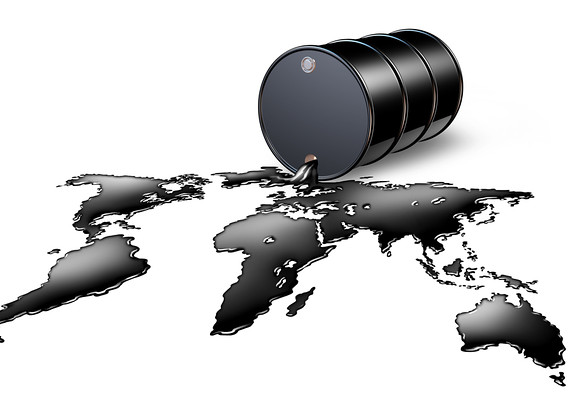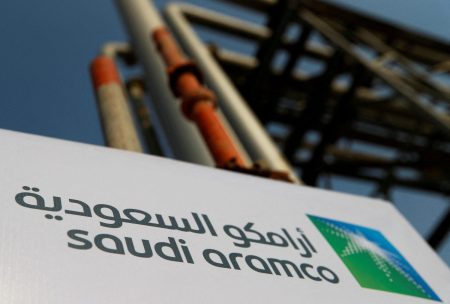
OpeOluwani Akintayo
with agency report
02 December 2018, Sweetcrude, Lagos — Nigerian ranks eleventh position on a top-20 list of countries with largest proven oil reserves.
Data sourced from World Atlas puts the country with a reserve of 37,062 billion barrels on the eleventh position after the United States of America with 39,230 billion barrels on the tenth position.
Despite the impressive attainment on the list, Nigeria’s crude oil reserve has remained stagnant at 37 billion barrels for the past ten years due to low exploration for new discoveries.
Nigeria’s crude oil is one of the most preferred due to its low sulfuric content, and low corrosiveness to refinery infrastructure. It also has a lower environmental impact of its byproducts during the refinery process, putting its grade, Bonny Light as one of the most expensively priced and sold at the international market.
1. Venezuela – 300,878 billion barrels
With 300,878 billion barrels of proven reserves, Venezuela has the largest amount of proven oil reserves in the world. The country’s oil is a relatively new discovery. Previously, Saudi Arabia had always held the number one position.
The oil sand deposits in Venezuela are similar to those in Canada. Venezuela also boasts plenty of conventional oil deposits. Venezuela’s Orinoco tar sands are significantly less viscous than Canada’s, so the oil sands there can be extracted using conventional oil extraction methods, giving it a considerable advantage over the Northern American rival in terms of capital requirements and extractions costs.
2. Saudi Arabia – 266,455 billion barrels
The Kingdom of Saudi Arabia has for many decades been viewed as the modern state most iconic of oils equation to opulence and influence in global politics. However, Saudi Arabia is no longer the world’s leader in oil potential.
While the Saudis’ 266,455 billion barrels of proven oil reserves are marginally smaller than those of Venezuela, all of Saudi oil is in conventionally accessible oil wells within large oil fields. Moreover, Saudi Arabia’s reserves are considered to comprise a fifth of the entire globe’s conventional reserves. There are many who also believe that, with further exploration, Saudi Arabia will surpass Venezuela at the top of the proven oil holdings charts. For example, the US Geological Survey estimates that there are well over 100,000 billion barrels lying undiscovered beneath the arid sands of Saudi deserts.
3. Canada – 169,709 billion barrels
Canada has almost 170,000 billion barrels of proven oil reserves, of which the most significant proportion is in the form of oil sands deposits in the province of Alberta. Furthermore, most of the country’s conventionally accessible oil reserves are located in Alberta.
As extracting oil from the vast majority of Canada’s oil reserves is a labor and capital-intensive process, production tends to come in sporadic bursts rather than steady streams. Oil companies, therefore, begin by extracting lower density, higher value oils first, and directing their efforts into extracting crude deposits only in times of high commodity prices.
4. Iran – 158,400 billion barrels
Iran has close to 160,000 billion barrels of proven oil reserves, making it considerably wealthy in terms of global oil resources. When looking at the most easily accessible reserves (excluding many of the unconventional, difficult-to-extract reserves in Canada), Iran falls right behind Venezuela and the Kingdom of Saudi Arabia.
Oil in Iran was first produced in 1908 and, at its current rate of extraction, Iran’s oil will last close to 100 years more. Unlike Saudi oil, which is spread throughout a few huge and very rich oil fields, Iranian oil is found in close to 150 hydrocarbon fields, many of which have both petroleum crude oil and natural gas.
5. Iraq- 142,503 billion
Despite shaky political situations in its recent history, the country of Iraq sits upon some of the world’s largest proven reserves of petroleum crude oil. As a matter of fact, owing to the civil unrest and military occupations which have characterized the national scene over the last few decades, it was not possible to do any meaningful exploration of Iraq’s oil reserves. As a result, even the data used to determine Iraq’s global oil holdings ranking is at least three decades old and based on 2D seismic surveys. Nevertheless, a period of relative calm over the last couple of years has given increased hope for developing the country’s oil infrastructure.
6. Kuwait – 101,500 billion barrel
While a small country in terms of land area, Kuwait holds more than a fair share of the world’s petroleum oil reserves. Over 5 bbl of reserves lie within the Saudi-Kuwaiti neutral zone which Kuwait shares with Saudi Arabia, while over 70 billion barrels of Kuwaiti oil are in the Burgan field, the second largest oil field in the world.
7. United Arab Emirates – 97,800 billion barrels
The United Arab Emirates (UAE) sources most of its oil from the Zakum field, which has an estimated 66 billion barrels, making it the third largest oil field in the region, behind only Ghawar Field (Saudi Arabia) and Burgan Field (Kuwait). Roughly 40 percent of the country’s GDP is based on oil and gas output and, since its discovery there in 1958, has enabled the UAE to become a modern state with a high standard of living.
8. Russia – 80,000 billion barrels
Russia is a country filled with natural resources for energy use, most notably the country’s massive oil reserves under the vast Siberian plains. Russian oil output fell considerably after the collapse of the former Soviet Union, but the country has revamped production in the past few years. The nation may further boost its reserves of oil and gas in the future as exploration continues beneath its holdings of arctic waters and ice.
9. Libya – 48,363 billion barrels
Libya has the largest oil reserves in Africa and the ninth largest globally. It has the potential to have a greater reserve of fossil fuel than we currently know of, as it remains largely unexplored as a result of past sanctions against foreign oil companies. Libyan oil accounted for 98% of government revenue in 2012 but, due to recent political instability, Libya’s power as an oil producer has been significantly hampered. Eventually, it is expected that untapped oil reserves will foster more economic investment as the political situation stabilizes.
10. United States – 39,230 billion barrels
U.S. oil reserves soared to new heights in recent years due to increased usage of unconventional drilling methods that enable extraction of more shale oil and gas than was previously possible. As a result of these, especially fracking and horizontal drilling, U.S. reserves surpassed 36,000 billion barrels in 2012 for the first time since 1975. Still, proven U.S. oil reserves are but a fraction of the reserves of the global petroleum leaders such as Venezuela, Saudi Arabia, and Canada.
Despite shaky political situations in its recent history, the country of Iraq sits upon some of the world’s largest proven reserves of petroleum crude oil. As a matter of fact, owing to the civil unrest and military occupations which have characterized the national scene over the last few decades, it was not possible to do any meaningful exploration of Iraq’s oil reserves. As a result, even the data used to determine Iraq’s global oil holdings ranking is at least three decades old and based on 2D seismic surveys. Nevertheless, a period of relative calm over the last couple of years has given increased hope for developing the country’s oil infrastructure.
Countries With The Largest Proven Oil Reserves
Rank Country Barrels (Billions of Barrels)
1 Venezuela – 300,878
2 Saudi Arabia – 266,455
3 Canada – 169,709
4 Iran – 158,400
5 Iraq – 142,503
6 Kuwait – 101,500
7 United Arab Emirates – 97,800
8 Russia – 80,000
9 Libya – 48,363
10 United States of America – 39,230
11 Nigeria – 37,062
12 Kazakhstan – 30,000
13 China – 25,620
14 Qatar – 25,244
15 Brazil – 12,999
16 Algeria – 12,200
17 Angola – 8,273
18 Ecuador – 8,273
19 Mexico – 7,640
20 Azerbaijan – 7,000



